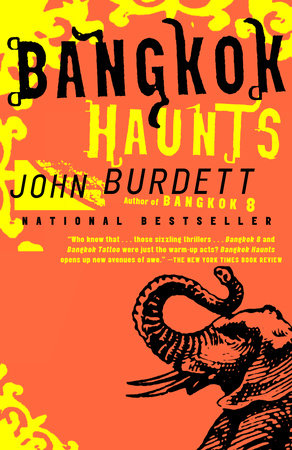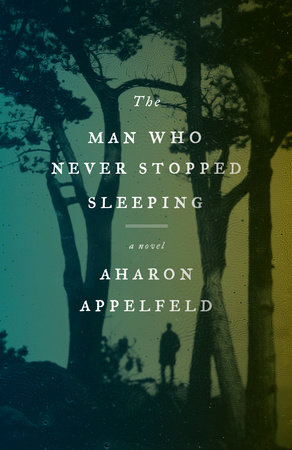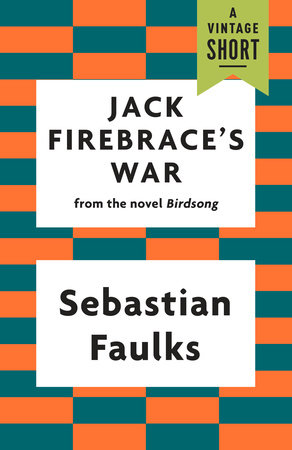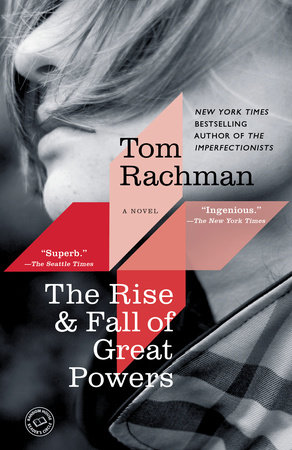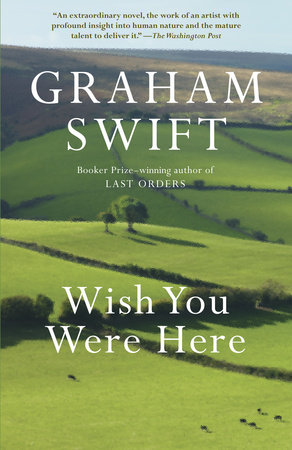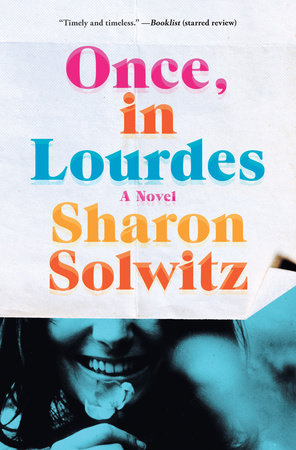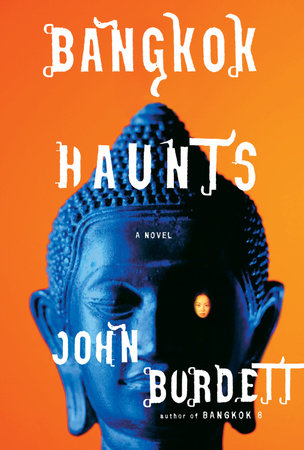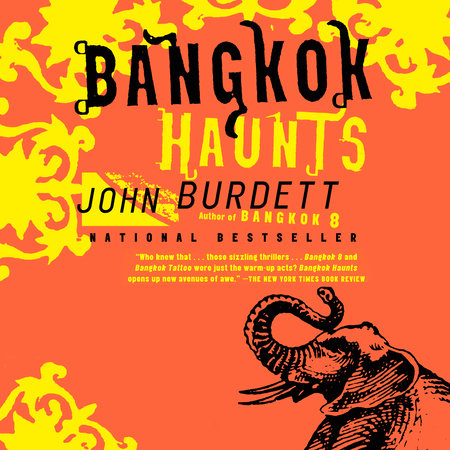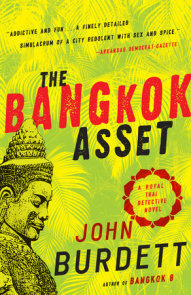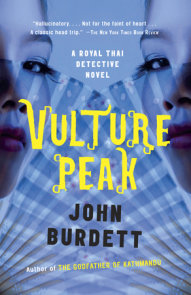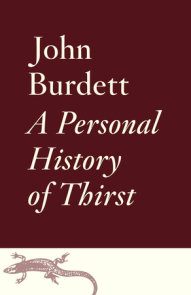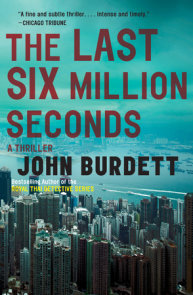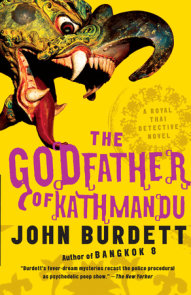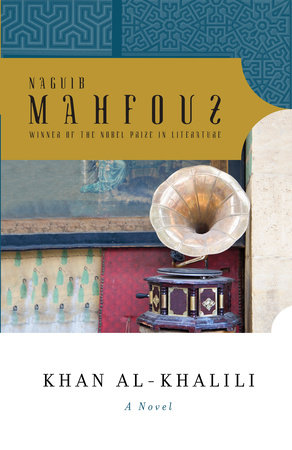Author Q&A
Q: The hero of your Bangkok stories, detective Sonchai Jitpleecheep, alludes to an age of “functional barbarism.” What does he mean by this?
A: “Functional barbarism” is Sonchai’s epithet for the modern age, globalism in the most general sense. To his Buddhist eyes, the whole construct of modern society, which of course includes the modern parts of Asia, is based not only on illusion in the sense that the material world is a mere trick of perspective, but on a kind of moral illusion: we Westerners tend to think of ourselves as humane, sensitive, educated, enlightened, generous, only wanting the best for the Third World etc. To Sonchai this is grotesque nonsense. Behind the undoubted success of applied science, our motives are essentially barbaric, and as a consequence we are producing a barbaric world driven by greed and militarism, despite all our good intentions.
Q: Is sex good or evil in Sonchai’s world? Or is it merely a matter of perspective?
A: May I suggest you ask yourself why our culture expects something as fundamental as copulation to be either good or evil? Is eating good or evil, do you think? In Buddhism there is no good or evil as such, there are levels of ignorance ranging from the most dense to the almost enlightened. Sex has a different aspect, and a different function, at each level.
Q: You present Lek, Sonchai’s trusted, cross-dressing assistant, as asexual, despite several other katoeys in the book who are clearly anything but. Why?
A: I cannot agree that he’s asexual. He doesn’t have sex, but he talks about it a lot, and associates with other katoeys who talk about it all the time. Sonchai points this out somewhere: it is a well known characteristic of many katoeys that they talk dirty whenever they get the chance, but can be quite prudish when it comes to the act itself.
Also, in the literature on transsexuals generally, there are some references to the fact that true transsexuals normally feel that they belong in a different body long before puberty and when they have successfully had the operation they tend to live quiet, often chaste, lives. Where their survival depends on participation in the sex trade, however, as is often the case in Thailand, then they are more or less compelled to talk dirty. An interesting take on this occurred after I wrote the book and took a trip to a very remote part of Isaan which is almost as pagan as it is Buddhist. There I found it a pastime amongst respectable women, who were scrupulously faithful to their husbands and dedicated mothers, to talk dirty–and I mean filthy–to each other all the time “just to keep from being bored.”
Q: Pornography is nothing new, so what do you think is the catalyst for the burgeoning porn market? Surely it cannot be something so mundane as a renewed interest in fidelity?
A: I think if we read the article from the New York Times, appended to the book, the answer is clear: porn is a massive growth industry because digital media permits it to be viewed in secret. Porn was negligible when it came in the form of postcards and bulky “men’s” magazines, started to take off with video shops, then when total anonymity was available in the form of downloads from the Net the shame factor was eliminated and porn exploded – and is continuing to do so.
I admire your unquenchable optimism when you ask if porn is a consequence of “a renewed interest in fidelity”. Don’t you think you are being slightly too literal? It’s like asking if the media’s fascination with violence is a “consequence of renewed interest in security”. How faithful would you feel if your mind was on the girl in the porn video while you made love to your betrothed? (How faithful would you feel your partner was being if her mind was on the jock in the porn clip?) I think to Sonchai porn is simply part of the ‘functional barbarism” of our times–an abuse of applied science which allows us to cop out emotionally, and even erotically. That’s why he prefers prostitution.
Q: On what do you base your portrayal of the film industry as literally fueled by narcotics?
A: The timeline is important here. Not very long ago–certainly during the eighties and nineties–your question would have seemed naïve. I am, I confess, simply using the popular wisdom that coke and celluloid were inextricably linked in many ways for a very long time and it was during this period that the now-incarcerated filmmaker Yammy was learning his trade. Another point to make is that pundits tend to agree that a huge proportion of the money on the international market originates in the black economy, especially narcotics; perhaps as much as one third. This amounts to many trillions of dollars which have literally built whole towns in the U.S. and other countries. How likely is it that the film industry, with its unlimited access to international finance, is unaffected?
Q: In BANGKOK HAUNTS, as in earlier Bangkok books, spirituality plays an important role for many characters. What is the difference between Thai Theravada and Khmer “sorcery”?
A: There is no comparison between the two. Theravada is the “orthodox” form of Buddhism which pervades SE Asia, except Vietnam and Japan which are Mahayana. It is very austere and seeks to follow the Buddha’s life in meticulous detail. It follows a simple but well-tried form of meditation technique. [Mahayana, best known in the West for its practice in Tibet and Japan, allows for more liberal interpretation and greater evolution.]
Khmer sorcery is probably a corrupt amalgam of Hinduism, early (pre-17th century) Buddhism, and local shamanism/animism. It has been very popular at grass roots level throughout Southeast Asia, and certainly has influenced those countries which share a border with Cambodia. We have to remember that in the past Khmer was the dominant culture of Indo China and a great deal of that culture still informs the subconscious. The classical Thai architecture of the Sukotai/Ayutia period which is so famous is derived from Khmer architecture, especially of course Ankor Wat.
Q: Has the violence of the yaa baa (methamphetamines) trade waned in southeast Asia? Perhaps the rise in Afghan poppy cultivation following the US invasion has caused a greater demand for more sedative drugs, like opium and heroin?
A: I wish it had, but I don’t think so. As far as I can tell, most if not all the poppy product from Afghanistan and Burma is sent West. Government suppression of the opiates at street level is quite successful in most of Southeast Asia. On the other hand, yaa baa–methamphetamine–is very easy to produce in bulk, very cheap, and very difficult if not impossible to suppress because it can be manufactured anywhere. It is therefore the ideal “poor farmer’s” drug. A great deal of production and abuse takes place in the countryside where so many families live in a state of constant despair. Young men in particular are vulnerable. Destructive though opium derivatives can be, I do not think they are as destructive to life and brain as yaa baa.
It is, of course, symptomatic of the problem–and an expression of the “functional barbarism”–that by vigorously suppressing other drugs, we end up with widespread dependence of the poorest and most vulnerable on the worst narcotics of all: yaa baa, alcohol, paint and glue etc. I fear this is all about governments–and perhaps some NGO’s–spinning reality to try to show the war on drugs can still be won, when in truth it was lost long ago. Where’s the value in saving someone from heroin if they go on to die from meths or in an alcohol-induced car crash?
Q: Why is Damrong’s family so cursed? Put another way: why doesn’t the impoverished town, Isakit, produce more intense, demonic individuals like Damrongs? After all, her parents’ neighbors seem just as poor, and they didn’t turn out to be demons.
A: I think the point is not poverty so much as the values a family is able to maintain in spite of it. As refugees from Cambodia, who had in some way been damaged by the civil war, Damrong’s family lacked the inner security, or–if you like–culture, to survive grinding poverty without being thoroughly corrupted by it. The weak character of her parents is of course also a factor. But isn’t it part of our universal experience that people from the same background can turn out so differently, even when they are identical twins?
Q: How has your study of the Thai language affected your writing?
A: Thai is an extremely efficient form of communication that tends to go straight to the point without fancy grammar or bloated vocabulary. I leave it to you to decide if my writing has benefited. I fear not.
Q: You document your inspiration for the elephant game. How about Dr. Supatra’s ghost porn?
A: A fan at a reading on a book tour of the U.S. asked me to include more ghosts in my next book. He was Southeast Asian, from Malaysia, where there are even more ghosts than in Thailand. When I thought about it I realized he was right–ghosts form an extremely important part of local culture and it is literally very difficult to find a Thai woman who has not seen at least one in her life. Men are slightly more reticent but will come clean under questioning: ghosts are everywhere. My problem, though, was that I had not–and still have not–come across any myself. So I made them up and saw no reason why my ghosts should not have a hi tech dimension.
Q: Chanya, Sonchai’s wife, makes the surprising suggestion that structural change of some sort is needed in Thailand. Is she alone in this?
A: There was a revolution here last year, and nothing but debate about structural change ever since. Yes, there are many reasons why Thailand is in a state of transition, one of them being a stronger independence amongst women. This is not generally feminism–Asian women tend voluntarily to adhere to a “feminine” identity and eschew what they see as “mannishness” –so much as a sense that the old structures are not working and cannot be made to apply to a modern state when they are almost exclusively the product of an agricultural society. A woman might be happy leading a tough life as a country housewife, because of the relaxed rhythms, social intercourse with other women, extended family, organic sense of belonging that country life brings. She may be much less tolerant when she is cooped up in Bangkok in a small flat with young children while her husband is permanently stressed, and therefore irritable, because the economy has forced him into a slave-like position. In addition, it is my own take that Thailand is having quite a problem reconciling its very honorable Buddhist principles with capitalist democracy as practiced in the West and elsewhere in Asia.
